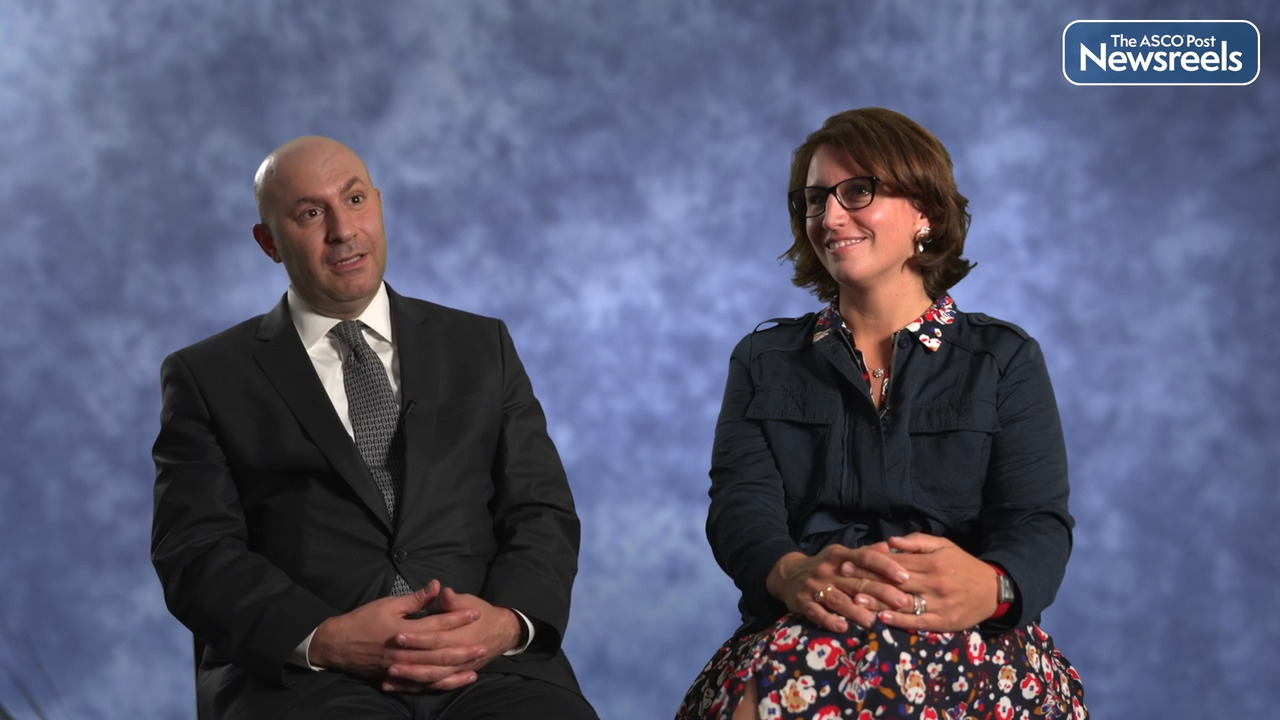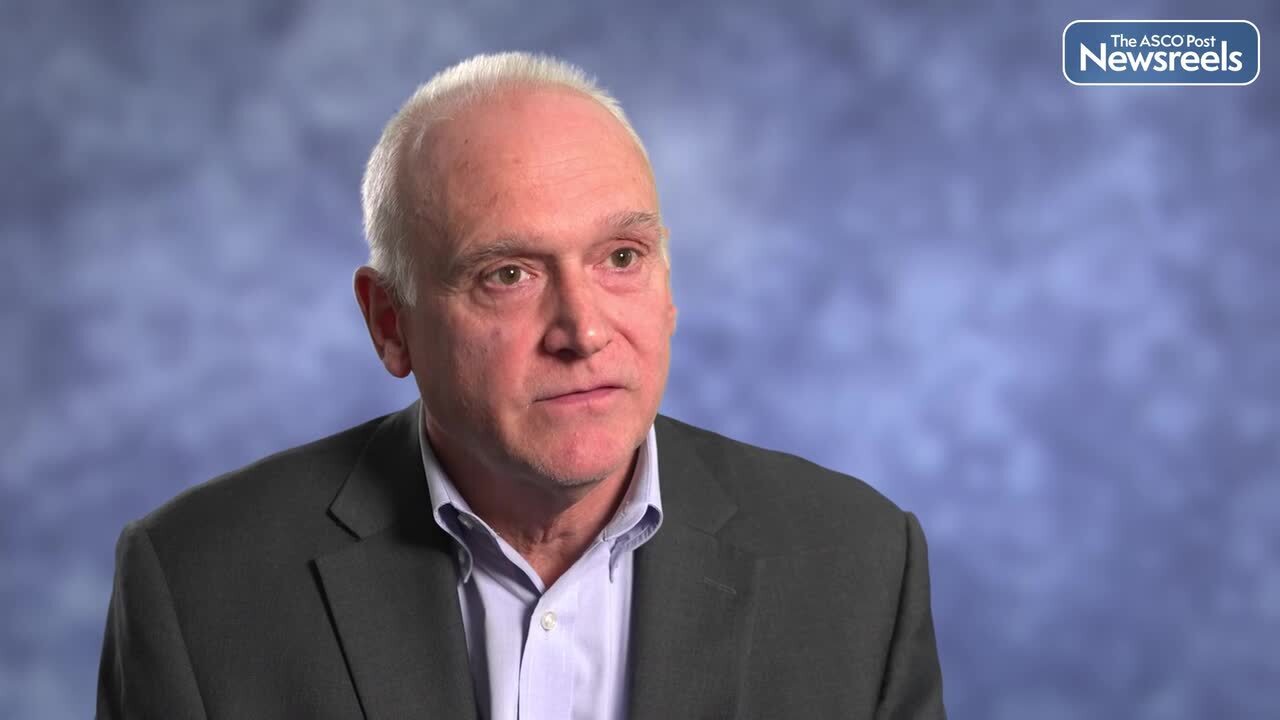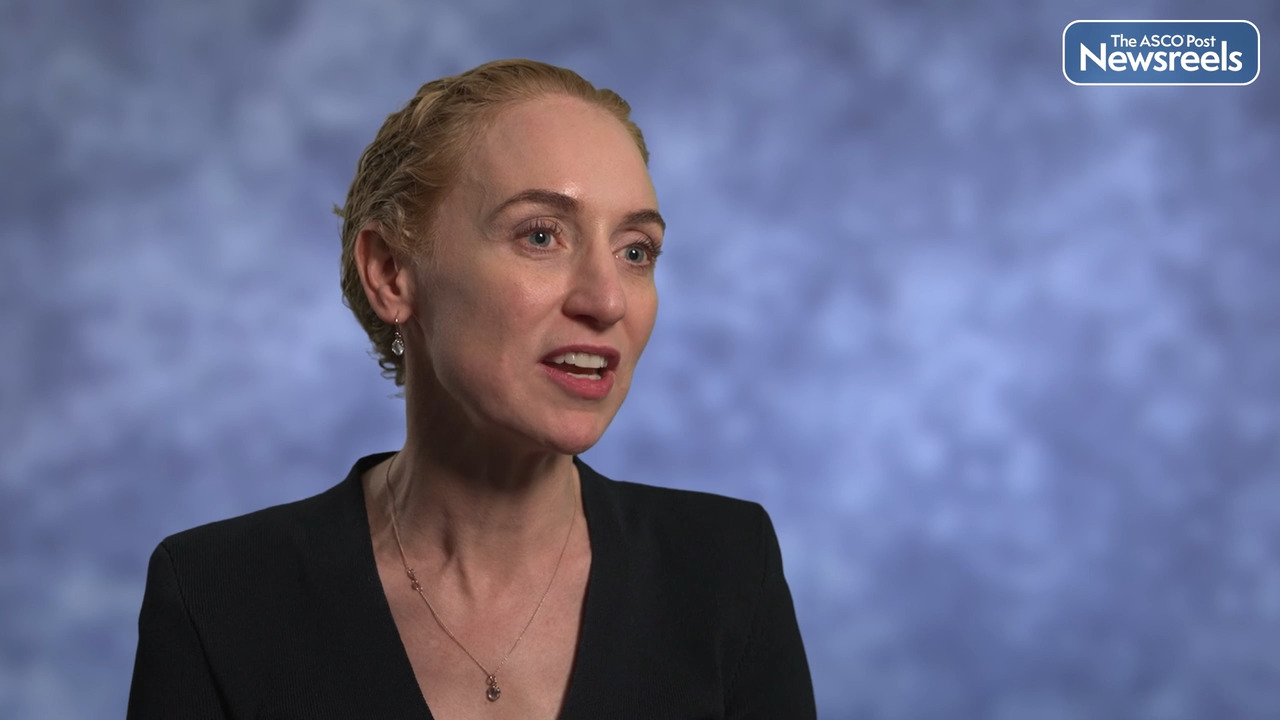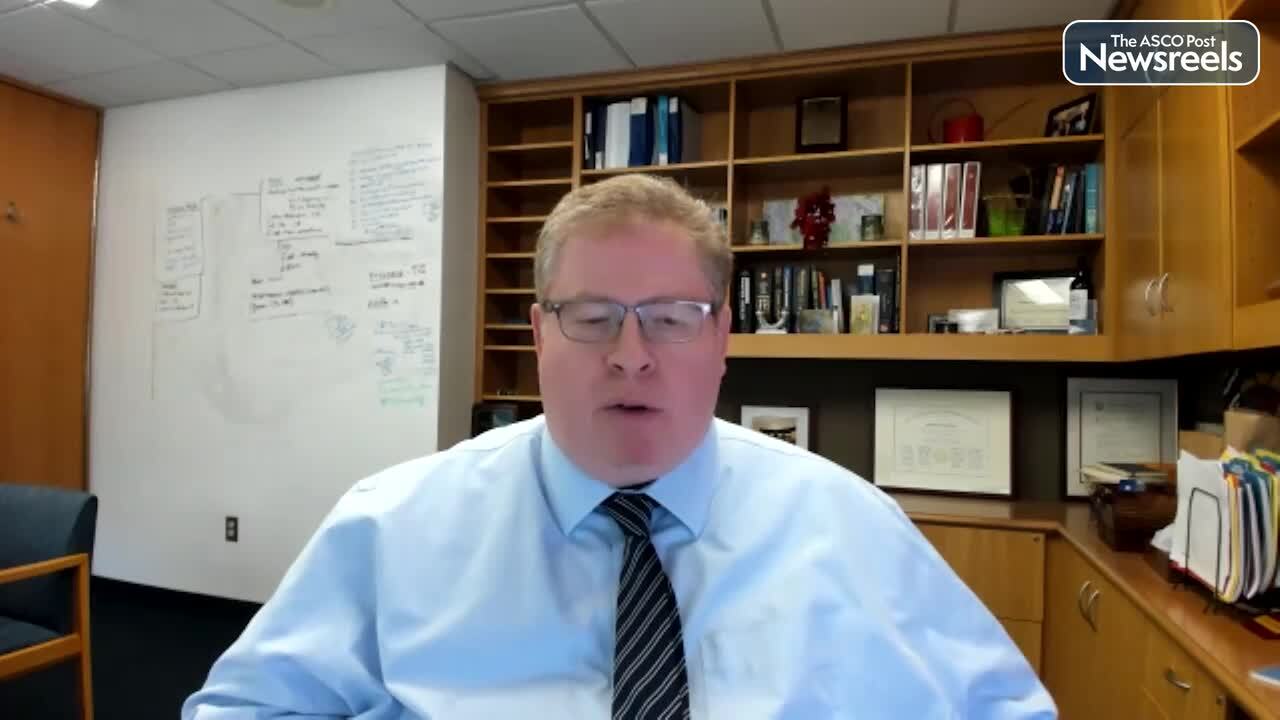Transcript
Disclaimer: This video transcript has not been proofread or edited and may contain errors.
The standard of care for patients with local regional renal cell carcinoma is surgery, which is partial or radical nephrectomy. And patients who have single or [inaudible 00:00:17] metastatic disease sites can undergo metastasectomy recommended by guidelines.
Now, the issue is that many of these patients actually suffer recurrences based on T stage grade and other factors and Aron therapies highly sought after. In the era of each of our targeted therapies, several trials have been performed and only Sunitinib was registered in the United States and approved, but not in Europe.
So none of these trials actually met their disease-free survival endpoints except Sunitinib and [inaudible 00:00:48], and none of them showed overt survival benefits. With a change to immune therapy, several trials were performed in the adjuvant setting with these drugs, and the first drug to be approved was pembrolizumab, a PDL1 inhibitor based on the results of KEYNOTE, KEYNOTE-64. pembrolizumab) 10 was the first trial to be designed in this setting with atezolizumab, a PDL1 inhibitor, and the rational was that it is registered for multiple tumor types.
Looking at the design of the trial, it is very similar to KEYNOTE if we look at the inclusion criteria, with the exception that we wanted to select the highest risk groups that required patients with a PT3a grade, a stage to have firm and grade three and four. And we also included a metastasectomy group that was resected to no evidence of disease. But for the metachronous group, it was required that their recurrence was not earlier than 12 months after resection. That was different from KEYNOTE.
So in the end, 778 patients were included, randomized one to one to atezolizumab versus placebo. The main endpoint was disease-free survival, investigator-assessed, and the intention to treat population and key secondary endpoints where overt survival in the ITT population, and then disease-free survival in the investigator-assessed population who had PDL1 expression. Baseline characteristics were well-balanced between these groups. Roughly 60% of the patients expressed PDL1 in both arms.
Unfortunately, the primary endpoint was not met at the pre-specified primary analysis. There was no evidence that atezolizumab reduced the risk of recurrence or death versus placebo. The hazard ratio was 0.93 with the P value of 0.5. The DFS landmark analysis at 24 months showed that the estimate was 67% for atezolizumab and 65% for placebo.
When we analyzed subgroups in the first plot, it became evident that the only thing that stood out was being female gender, but all the other subgroups that were actually interesting for us showed signals, but they crossed the bar of the 95% confidence into [inaudible 00:02:56]. Was especially the case in the metachronous subgroup, the PDL1 subgroup, and those ones expressing sarcomatoid features.
So atezolizumab was well-tolerated. The safety profile was consistent of what we know of the drug. There were no treatment related deaths. So in summary, we unfortunately have to conclude that there's no evidence that atezolizumab reduced the risk of recurrence or deaths of any course. Next steps will be, although the signal wasn't as strong, we saw in the post-talk exploratory analysis that patients who express at least 5% or more PDL1 on their tumor-infiltrating immune cells may be an interesting subgroup. So further biomark analysis will be done to understand whether atezolizumab has an indication in that group.





